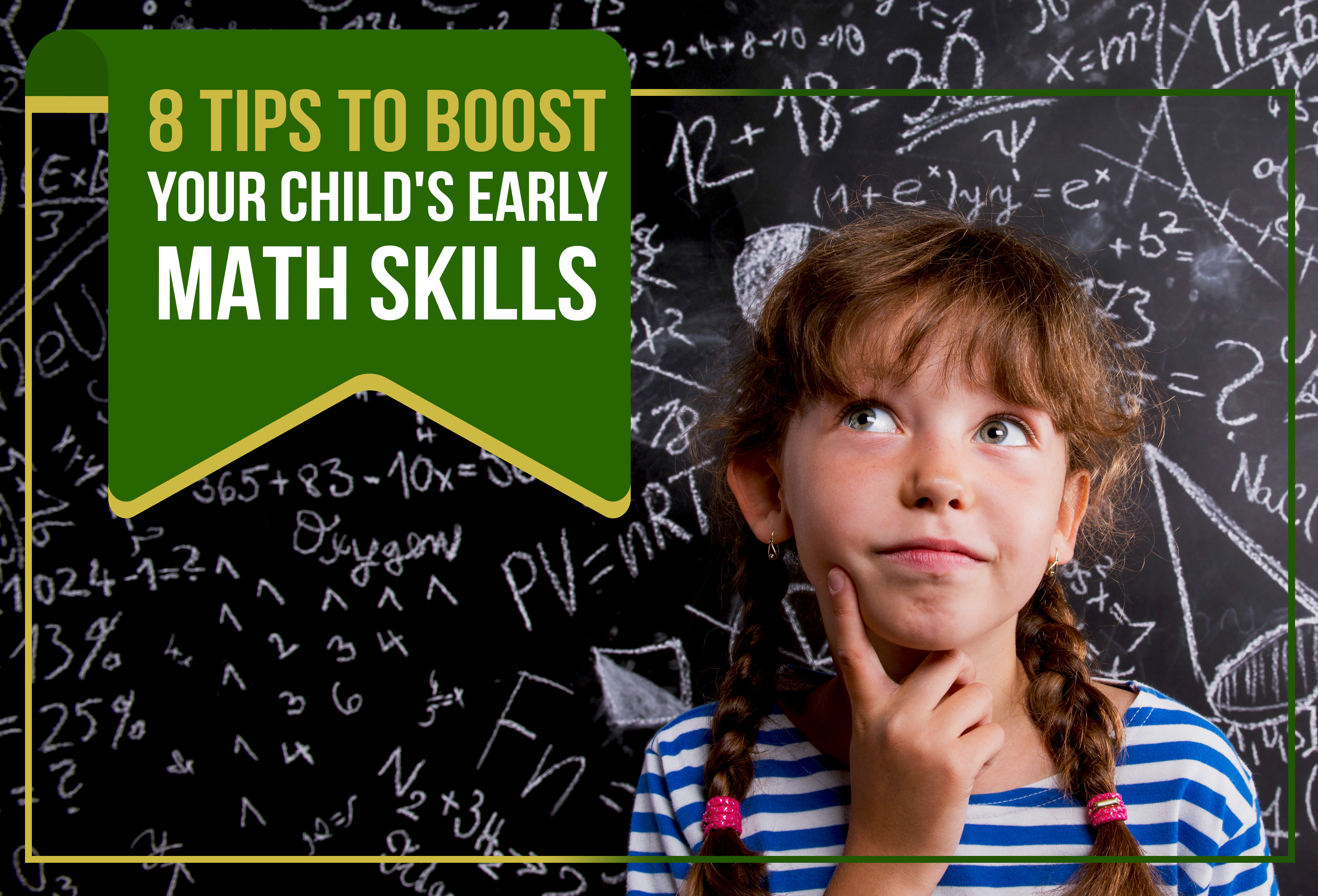8 Tips to Boost Your Child's Early Math Skills
The development of math skills during early childhood is a crucial component when it comes to being ready for school. Most children begin to understand basic math concepts before they even start school, since most of their daily activities and routines involve the use of some math skills. As parents, you can help strengthen your child's foundation in math from an early age by following these tips.
Count everything!
Demonstrate the concept of counting early and often with your little one. Counting is the foundation of all basic math skills. Invite young children to count objects all around them, such as the number of stairs they climb, how many blocks they build, or the number of cookies they eat. When kids practice counting, it can help them develop a strong understanding of numbers they will need down the road.
Play games that involve math skills
When you make learning math fun, it can help spark children's interest in math and reduce their anxiety about math concepts. There are many fun and interactive games that can help children develop basic math skills. A few examples include matching games, sorting games, and counting games. Not only are these games educational, but they're enjoyable too!
Have children practice simple addition and subtraction problems
The basic skills of addition and subtraction are the foundation of many early math concepts, and can be grasped by many kids from an early age. When children are very young, even simple addition and subtraction problems are likely to be too complex, but there are still things you can do to help your child start to build a foundation for these skills. For example, you might play simple games with your little one, such as "Guess the Number", or have your child sort piles of blocks into two different groups.
Practice early graphing activities
It is never too early for children to become acquainted with graphs and charts. In fact, it's encouraged! These fun activities also will enrich your child’s development of visual-spatial awareness skills, which are essential not just in math, but also across a variety of other subjects. For examples of fun activities, you might create a wall chart with stickers . Ask children to arrange the stickers in a line or design a pattern of their own. This type of activity can help boost early foundational math skills like graphing, counting, number sense and recognizing patterns.
Help your child develop number sense
In order for children to grasp basic arithmetic processes, it’s important for them to gain a strong understanding of numbers and how they relate to each other. The more familiar children are with numbers and their quantities, the more successfully they’ll be able to solve basic addition and subtraction problems down the road.
A suggested activity includes showing children sets of objects (between five and ten objects per set), and then asking them which various combinations of groups can be created from those same objects. These simple types of activities help enrich the development of number sense and estimation skills at an early age.
Introduce basic measurement concepts
In addition to counting, math also involves measuring. It’s beneficial for children to develop a basic understanding of measurement concepts, as these can help them in other areas of math as well as other subject areas.
Some fun ways to introduce the concept of measurements to young kids include cooking together, measuring ingredients for a favorite recipe, or playing with water.. These activities help children learn about volume, weight, length, and temperature.
Encourage problem-solving skills
One of the most important skills for success in mathematics is solving problems. In order to solve problems, children need to think flexibly and creatively.
Encourage children to be problem solvers by providing them with opportunities to solve math problems that are just beyond their current ability level. For example, ask kids to complete addition and subtraction problems using the digits 1-9. Or give them a set of three-dimensional shapes and see if they can create a two-dimensional shape using all shapes. These types of problem-solving activities will help children develop strong problem-solving skills that will benefit them throughout their lives.
Foster a positive attitude towards math
Children’s attitudes towards mathematics can play a significant role in their academic success. If a child feels anxious or overwhelmed at the mere mention of math, it will be difficult to learn and succeed in that subject area.
On the other hand, if children have a positive attitude towards mathematics, they are more likely to try harder and persevere through challenges.
One way to foster a positive attitude towards math is by making it fun. You can do this by playing games together, doing puzzles, or creating crafts that incorporate mathematical concepts. When children associate math with fun activities, they will be more inclined to view the subject in a positive light.
Developing early math skills doesn't have to be difficult or boring! These eight tips will help make the process of learning basic math concepts a little easier and a lot more fun. So get started today and watch your child's math skills blossom!
At Mrs. Myers' Learning Lab, we have a ”Nifty Numbers” math program that encompasses fun and interactive techniques through our small-group classes. All of our certified teachers utilize a multi-sensory approach that keeps students actively engaged throughout each 60-minute class. Contact us to find out more!





